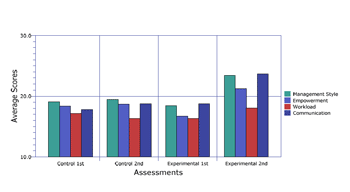Programme effectiveness: research
The Challenge of Change Resilience programmes are results-focused and measurable. The case studies shown here provide evidence of the effectiveness of implementing the programme.
Apart from the fundamental lab research described in the 'The Research', there is a series of 5 controlled-trial case studies which show clearly the impact of the training on a range of measures, including sickness-absence.
- Sickness-absence Case Study
This study shows that one year police officers who completed a full Challenge of Change Resilience course reduced their sick leave by 50 per cent and reported better coping than a control group. Read more...
- New Zealand Case Study
This study shows how people who completed a full Resilience course were measurably and significantly more resilient 10 to 14 months after training compared to a control group. Read more...
- Summary of 3 Challenge of Change Case Studies
Study 1 also presents the results of the New Zealand Case Study mentioned above.
Study 2 shows how two of the scales on the Challenge of Change questionnaire are correlated with 360 scores. Top leaders in the 360 scores are more emotionally open and are better able to keep perspective – or to keep the bigger picture. While they have a results orientation, they are not hard task managers and so would not be seen putting unreasonable demands on people or engage in bullying behaviours.
Study 3 also shows that six months after Challenge of Change Resilience training there are measurable and significant changes in employee’s resilience and significant reductions in sickness absence.
Read more...

